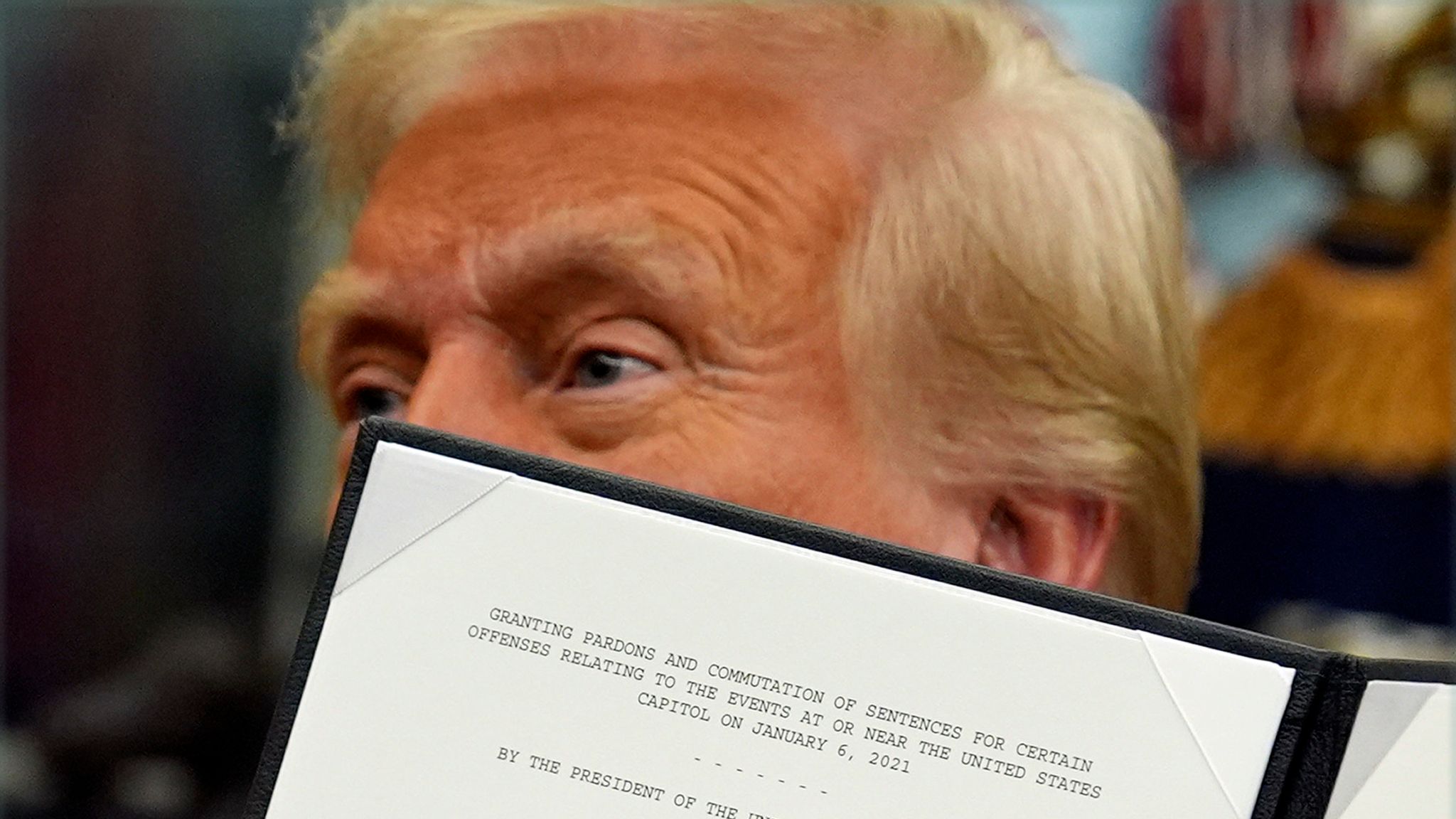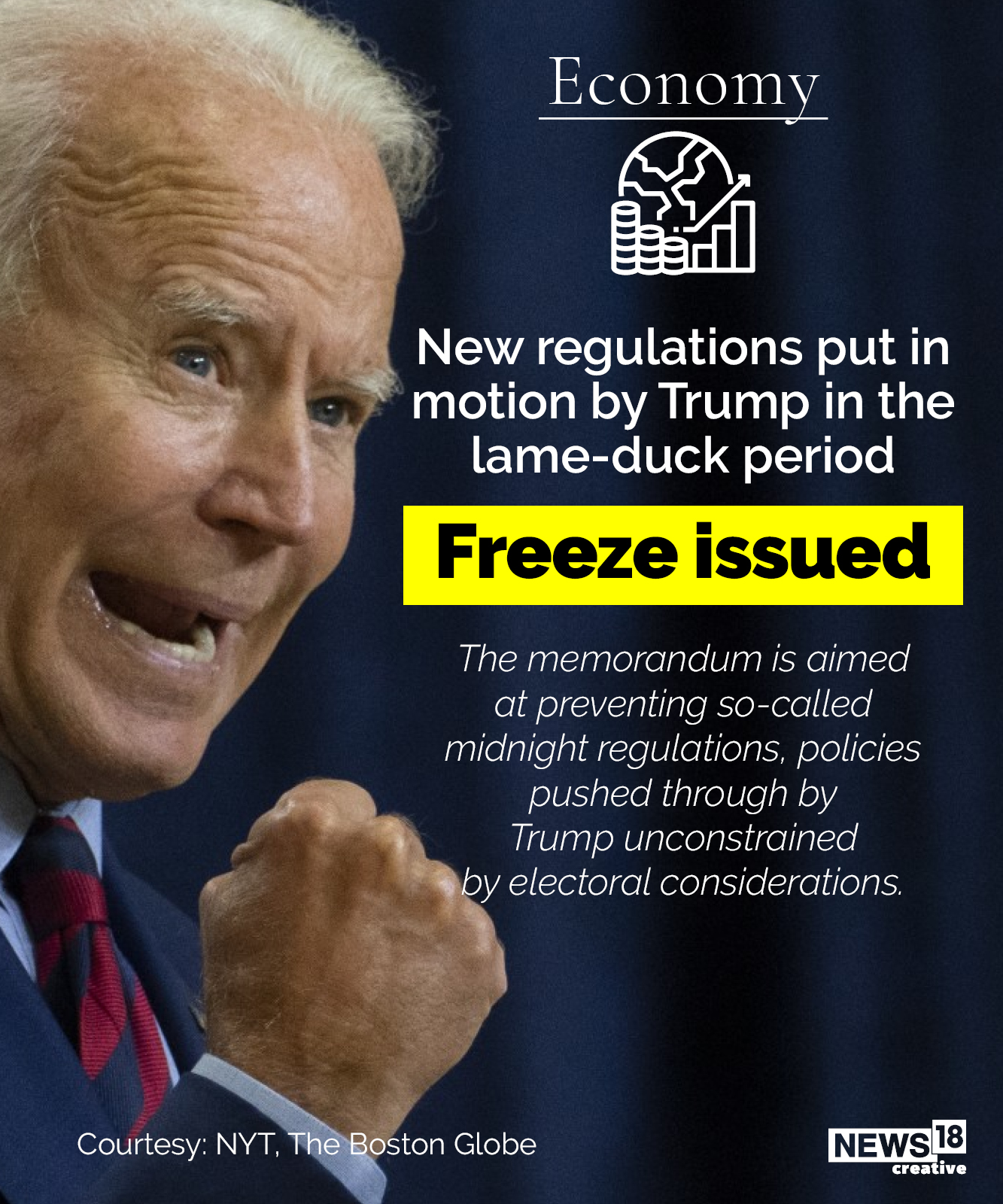Executive Orders: The Ultimate List And Guide You've Been Searching For
Executive orders have become a hot topic in political discussions, shaping policies and influencing the nation's direction. Whether you're a political enthusiast, a student, or just someone curious about how the government operates, understanding executive orders is crucial. In this article, we'll dive deep into the world of executive orders, breaking them down in a way that's easy to understand and packed with valuable insights.
Now, let's be real—executive orders aren't exactly the sexiest topic out there, but trust me, they're super important. From immigration to climate change, these orders can make a massive impact on people's lives. So, if you want to know what's going on behind the scenes, you're in the right place.
By the end of this article, you'll have a solid grasp of executive orders, their history, and some of the most significant ones ever issued. Plus, I'll give you tips on how to stay informed and why it matters. Ready? Let's jump in!
What Are Executive Orders Anyway?
Alright, let's start with the basics. Executive orders are official instructions issued by the President of the United States. Think of them as the president's way of saying, "Hey, here's what I want done, and I'm making it happen now." They're legally binding and can affect federal agencies, but they don't require approval from Congress. Cool, right?
Here's the kicker—executive orders aren't mentioned in the Constitution, but they've been around since George Washington's time. Presidents use them to manage the operations of the federal government, set policies, and address urgent issues. But don't worry, there are checks and balances. Courts can overturn them, and Congress can pass laws to counteract them.
Why Do Executive Orders Matter?
Let's talk about why executive orders are such a big deal. They're like a shortcut for presidents to implement policies without waiting for Congress to agree. This can be both a blessing and a curse, depending on how you look at it. On one hand, they allow presidents to act quickly in times of crisis. On the other hand, they can spark controversy and debates about presidential power.
- The Jackson 5 Film
- White Almond Shape Nail Designs
- Pictures Of Aircraft Crash Victims
- Thanksgiving Hours At Golden Corral
- Jane Leeves Movies And Tv Shows
For example, think about climate change. A president could issue an executive order to reduce carbon emissions or protect national parks. These decisions can have long-lasting effects on the environment and the economy. So, yeah, executive orders matter a lot.
How Are Executive Orders Issued?
Issuing an executive order isn't as simple as writing a tweet. The president has to follow a formal process. First, they draft the order, usually with the help of legal advisors. Then, they sign it, and it's published in the Federal Register. Once it's out there, it becomes law-like, affecting federal agencies and operations.
Here's the fun part—executive orders can be revoked or modified by future presidents. It's like a game of policy ping-pong. One president issues an order, and the next one might undo it. This back-and-forth is part of the political landscape, and it keeps things interesting.
A Brief History of Executive Orders
Executive orders have been around since the founding of our nation. George Washington issued the first one, and every president since then has used them. Some presidents, like Franklin D. Roosevelt, issued hundreds, while others, like James Buchanan, issued very few.
Let me give you a quick timeline:
- 1789: George Washington issues the first executive order.
- 1933: Franklin D. Roosevelt issues the most executive orders, with over 3,700 during his presidency.
- 1941: FDR signs Executive Order 9066, leading to the internment of Japanese Americans during World War II.
- 2012: Barack Obama issues the Deferred Action for Childhood Arrivals (DACA) program.
See how these orders shaped history? They're not just paperwork; they're decisions that affect real people's lives.
The Most Notable Executive Orders
Now, let's take a look at some of the most famous executive orders in history. These aren't just random orders—they've had a significant impact on the country and the world.
Emancipation Proclamation
Issued by Abraham Lincoln in 1863, this order declared that all enslaved people in Confederate states "shall be then, thenceforward, and forever free." It was a turning point in the fight against slavery and set the stage for the 13th Amendment.
Executive Order 9066
Franklin D. Roosevelt signed this order in 1942, leading to the forced relocation and internment of Japanese Americans during World War II. It's a dark chapter in American history and a reminder of the potential misuse of executive power.
Executive Order 9981
In 1948, Harry Truman issued this order to end racial segregation in the U.S. Armed Forces. It was a bold move and a significant step toward civil rights for African Americans.
How Do Executive Orders Affect You?
Let's get personal for a moment. How do executive orders impact your life? Well, it depends on the order and your situation. For example, if you're an immigrant, an executive order on immigration policy could affect your status or your ability to stay in the country. If you care about the environment, an order on climate change could influence the air you breathe and the water you drink.
Here's the thing—executive orders aren't just about politics. They're about people. They can create opportunities, protect rights, or impose restrictions. That's why it's important to pay attention to them and understand their implications.
Examples of Recent Executive Orders
Let's talk about some recent orders that have made headlines:
- Travel Bans: Several presidents have issued orders restricting travel from certain countries, sparking debates about national security and human rights.
- Climate Action: Recent administrations have issued orders to combat climate change, such as rejoining the Paris Agreement.
- Healthcare: Orders related to healthcare, like changes to the Affordable Care Act, can affect millions of Americans.
These orders aren't just numbers—they're policies that touch people's lives every day.
Can Executive Orders Be Challenged?
Yes, they can. Courts have the power to review and overturn executive orders if they're deemed unconstitutional or beyond the president's authority. This is part of the system of checks and balances in our government.
For example, in 2017, a federal court blocked parts of President Trump's travel ban executive order. The court ruled that it violated the Constitution's Establishment Clause. It's a reminder that no one, not even the president, is above the law.
How Are Executive Orders Reviewed?
When an executive order is challenged, it goes through the judicial system like any other legal case. Lawyers argue the merits, and judges make decisions based on the Constitution and precedent. It's a slow process, but it ensures that executive orders are subject to scrutiny.
Tips for Staying Informed
Now that you know how important executive orders are, here's how you can stay informed:
- Follow the News: Keep up with reputable news sources to learn about new orders as they're issued.
- Read the Orders: Many executive orders are available online. Reading them can give you a deeper understanding of their impact.
- Engage in Discussions: Talk to friends, family, and experts about the implications of executive orders. Different perspectives can broaden your understanding.
Knowledge is power, and staying informed is the first step in making a difference.
Conclusion: Why Executive Orders Matter to You
So, there you have it—a deep dive into the world of executive orders. They're not just bureaucratic paperwork; they're decisions that shape our nation and our lives. Whether you're passionate about civil rights, environmental protection, or healthcare, executive orders can affect the issues you care about.
Here's what you should take away:
- Executive orders are powerful tools used by presidents to implement policies.
- They can have both positive and negative impacts, depending on the order and its implementation.
- Staying informed is crucial to understanding their implications and making your voice heard.
Now, it's your turn. Share this article with your friends, leave a comment, or check out other articles on our site. Together, we can keep the conversation going and make a difference.
Table of Contents
- What Are Executive Orders Anyway?
- Why Do Executive Orders Matter?
- How Are Executive Orders Issued?
- A Brief History of Executive Orders
- The Most Notable Executive Orders
- How Do Executive Orders Affect You?
- Can Executive Orders Be Challenged?
- Tips for Staying Informed
- Conclusion: Why Executive Orders Matter to You
Article Recommendations
- Go Kart Burnsville Mn
- Ulricht
- Paul Walker Actor Bio
- What Happens To Will In Stranger Things
- J D Vance Couch Meme



Detail Author:
- Name : Andreane Bergstrom
- Username : terry.isobel
- Email : karley09@kuphal.org
- Birthdate : 2006-08-05
- Address : 5127 McDermott Pine Goldnershire, MT 50632-6244
- Phone : (508) 275-4117
- Company : Champlin-Medhurst
- Job : Machinist
- Bio : Commodi ducimus necessitatibus reprehenderit incidunt saepe. Dolorem ea ratione facilis distinctio ducimus sit et et. Alias quas nemo inventore sunt. Fuga aut non ut non.
Socials
twitter:
- url : https://twitter.com/torphy2016
- username : torphy2016
- bio : Mollitia repellendus cumque doloribus veritatis et et error. Enim similique autem ex debitis. Aut error asperiores recusandae.
- followers : 852
- following : 835
linkedin:
- url : https://linkedin.com/in/edgar.torphy
- username : edgar.torphy
- bio : Fugit ratione molestias qui.
- followers : 3820
- following : 253
instagram:
- url : https://instagram.com/edgar.torphy
- username : edgar.torphy
- bio : Ut qui sint repellat atque modi perspiciatis. Non qui quam molestiae non quaerat sint qui quae.
- followers : 3030
- following : 1185